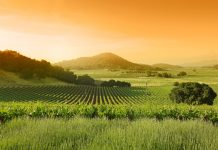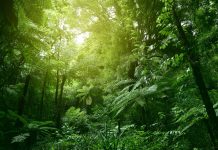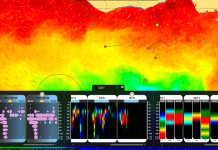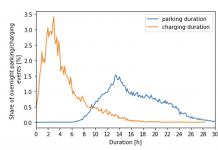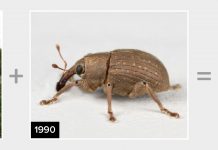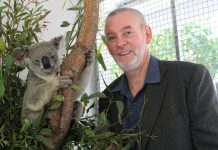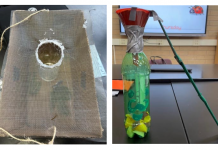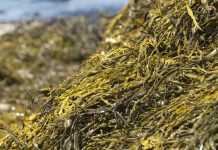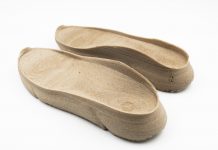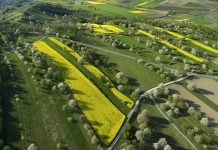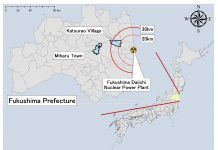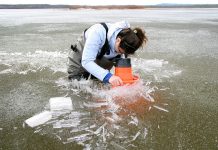Home 2024
Archives
Permafrost grown: The heterogeneity of permafrost conditions
Melissa Ward Jones, from the University of Alaska Fairbanks, explains the heterogeneity of permafrost conditions and how it can impact agriculture.
Time to strengthen and enforce the north american migratory bird treaty act
The number of migratory bird populations is declining; Keith Hobson, professor and research scientist at Environment and Climate Change Canada and Western University, outlines the importance of updating conventions to protect these vulnerable species.
Ensuring the best performance of sensor-driven irrigation systems in vineyards
Professor Pete W. Jacoby, from Washington State University, explains how to ensure the best performance of sensor-driven irrigation systems in vineyards.
Protecting genetic diversity to benefit nature and society
There are three ways that governments and other conservation actors at all levels can monitor and protect genetic diversity, supporting the attainment of biodiversity goals and targets. But first, what is genetic diversity, and is there potential to safeguard it better?
How Tun-AI technology can be used to estimate tuna biomass
Satlink, a leading buoy manufacturer, has partnered with Komorebi AI researchers to develop Tun-AI, a machine-learning protocol that contextualizes echo-sounder data from buoys to estimate tuna biomass, shaping the future of fishery science.
GPS logging of smart charging of electric vehicles
Filip Johnsson, Maria Taljegard and Yuki Kobayashi from Chalmers University of Technology, investigate the smart charging of electric vehicles, specifically GPS logging of driving and charging patterns.
Classical biological control: Nature-based solutions to reduce pesticide usage
Professor Martin Hill from the Centre for Biological Control at Rhodes University discusses the benefits of classical biological control and highlights the necessary considerations for this approach.
Circular textiles research: Recycling technologies
Miguel Sanchis Sebastiá, CEO of ShareTex and Ola Wallberg, Professor at Lund University, unpack research and innovation within circular textiles sector, explaining the role of recycling technologies in a larger strategy.
Solving recycling challenges with sustainable polymers
Angela Ivanova, CEO & Co-Founder, explains how her firm LAM’ON solves recycling challenges. A shift to sustainable polymers will reduce the environmental footprint of non-degradable packaging materials; we discover.
Navigating koala conservation challenges with advanced tech and game-changing vaccine research
Discover the intricate tale of koala survival, from habitat struggles to the rise of Chlamydia vaccines, in this exclusive interview with Professor Peter Timms from The University of Sunshine Coast, Australia.
COP28: The fossil fuel COP and political leadership on climate
Richard Beardsworth, Professor of International Relations and Head of School from POLIS, University of Leeds, reflects on COP28, focusing on the fossil fuel COP and political leadership on climate.
Youths’ solutions to local invasive species
Educating students about real-world, issues such as local invasive species aims to encourage wider engagement with STEM.
Algae4IBD Project: Are algae the solution for inflammatory bowel disease
The Algae4IBD project seeks effective treatments for a chronic disease affecting 6.8 million people. Juan F. Samaniego explores whether algae are the definitive solution for inflammatory bowel diseases.
ECHO: Engaging citizens in soil health and science
Here, we learn about the ECHO project, coordinated by Soil Scientist Prof Tanja Mimmo of the Free University of Bozen-Bolzano, Italy.
Sustainable marine technologies and innovation – TFI Marine SeaSpring
TFI Marine places sustainable marine technologies and innovation under the spotlight, starting with a look at floating offshore wind.
Adaption solutions for improved climate change resilience
Patricia Carbonell, RESIST Communication Contact at REVOLVE – Communicating Sustainability, discusses adaptation solutions for improved climate change resilience in European regions.
Bio-based solutions for a circular economy
Principal Scientist Ulla Forsström from the VTT Technical Research Centre of Finland Ltd tells us about the INN-PRESSME Open Innovation Test Bed project, which aims to develop novel, sustainable and recyclable bio-based solutions to replace fossil-based plastic.
Green infrastructure for ecosystem resilience
Mita Drius and Luana Silveri from the Free University of Bozen-Bolzano, explain fostering green infrastructure for ecosystem resilience in Alpine regions. The FRACTAL model, we hear, is a bottom-up all-round approach.
Prolonged impact of the Fukushima Nuclear Power Plant Accident on health and society
Naomi Ito, Research Assistant at the Fukushima Medical University, tells us how the 2011 Fukushima Daiichi Nuclear Power Plant Accident impacted and continues to impact local residents.
Interact fostering polar science and research in the arctic
Margareta Johansson and Terry V. Callaghan CMG, on behalf of INTERACT friends, walk us through a series of EU projects that foster polar science and research in the Arctic.




